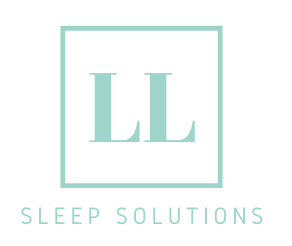How Light Impacts Your Little One's Sleep
/When it comes to sleep, there are so many factors that might be impeding your little one’s ability to just fall asleep easily when they’re tired. Their hormone levels may be out of balance, they may be in some kind of physical discomfort, too hot or too cold, they may be overtired or not tired enough…there are lots of possibilities!
However, one thing I can tell you that we often underestimate how much light impacts ours little ones’ sleep. Exposure to blue light has been shown to decrease baby’s feelings of drowsiness, increase the time it takes for them to fall asleep, reduce deep sleep, and impact their ability to stay asleep.
Over time, our bodies began secreting hormones to help us sleep when it began to get dark (melatonin) and to provide stimulation when it got light (cortisol). Our bodies and brains evolved to recognize these cues from the sun, and started secreting those hormones at the appropriate time of day to either help us wake up and get going, or to settle down and go to sleep.
This all worked well right up until technology came into play.
Once we brought blue light into our lives (from televisions, smart phones, tablets, etc.), you can see how our brains started to get confused. Our eyes started picking up “daytime” light well into the night, our brains kept secreting cortisol to keep us alert, started blocking the release of melatonin, and sleep suddenly found itself fighting an uphill battle.
So, if blue light impedes your baby's sleep, will red light actually improve it?
The jury is still out on this debate. Some studies suggest that short-wavelength red light can indeed help stimulate melatonin production, but others have shown that exposure to red light, while much less inhibitive to sleep than blue light, resulted in similar or slightly less melatonin production than if baby just slept in the dark.
In essence, a red light in the nursery isn’t likely to help improve your little one’s sleep, assuming they’re already sleeping in a dark room. However, if you need a light in the nursery for diaper changes or nighttime feedings, red light is absolutely the way to go.
Some other light management tips than will help your child sleep better in the night include:
• Turning the lights in the house down (or off, if possible) one to two hours before baby’s bedtime
• Turning off all tablets, phones, TVs, or any other electronic devices at least 60-90 minutes before bed.
• Don’t allow your little one to use electronic devices in their bed at any time of day.
• Put a piece of tape over any lights emitted by devices in your baby’s nursery.
• Use a red light during baby’s bedtime routine activities and during night feeds.
Technology is not going anywhere so I think as you as you know that facts about how it can affect sleep, it should be relatively easy to make a few tweaks around usage so that the impact is minimal on both you and your little one’s sleep.



